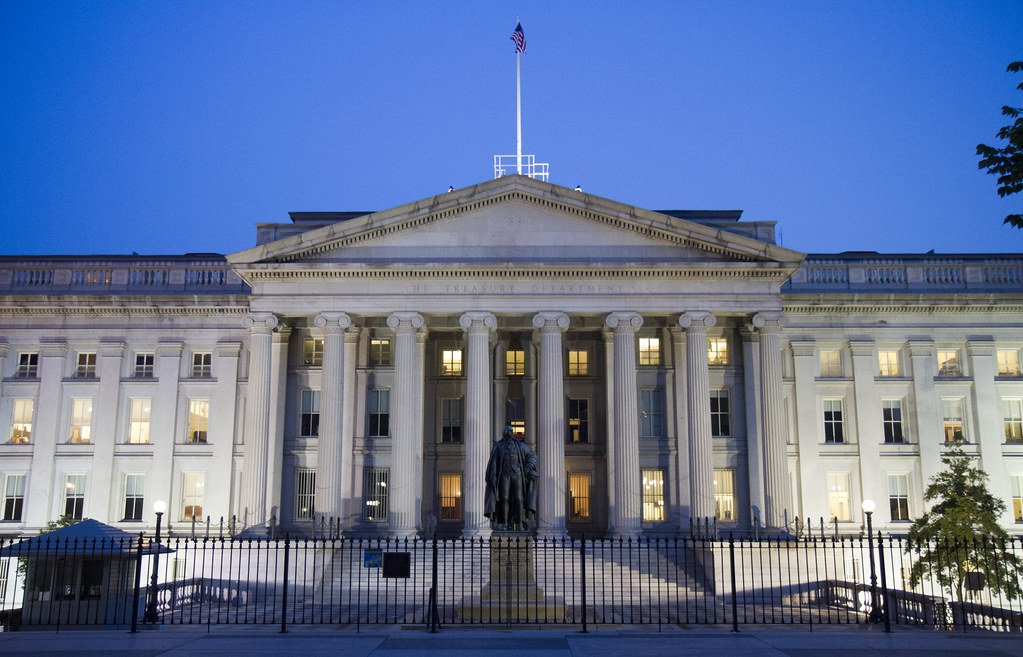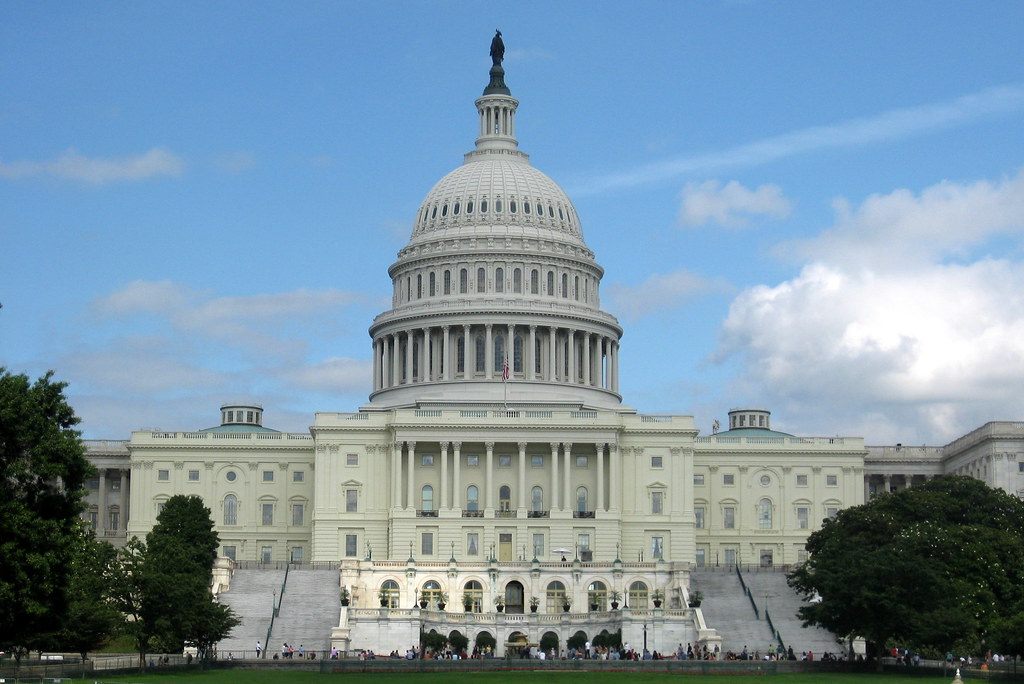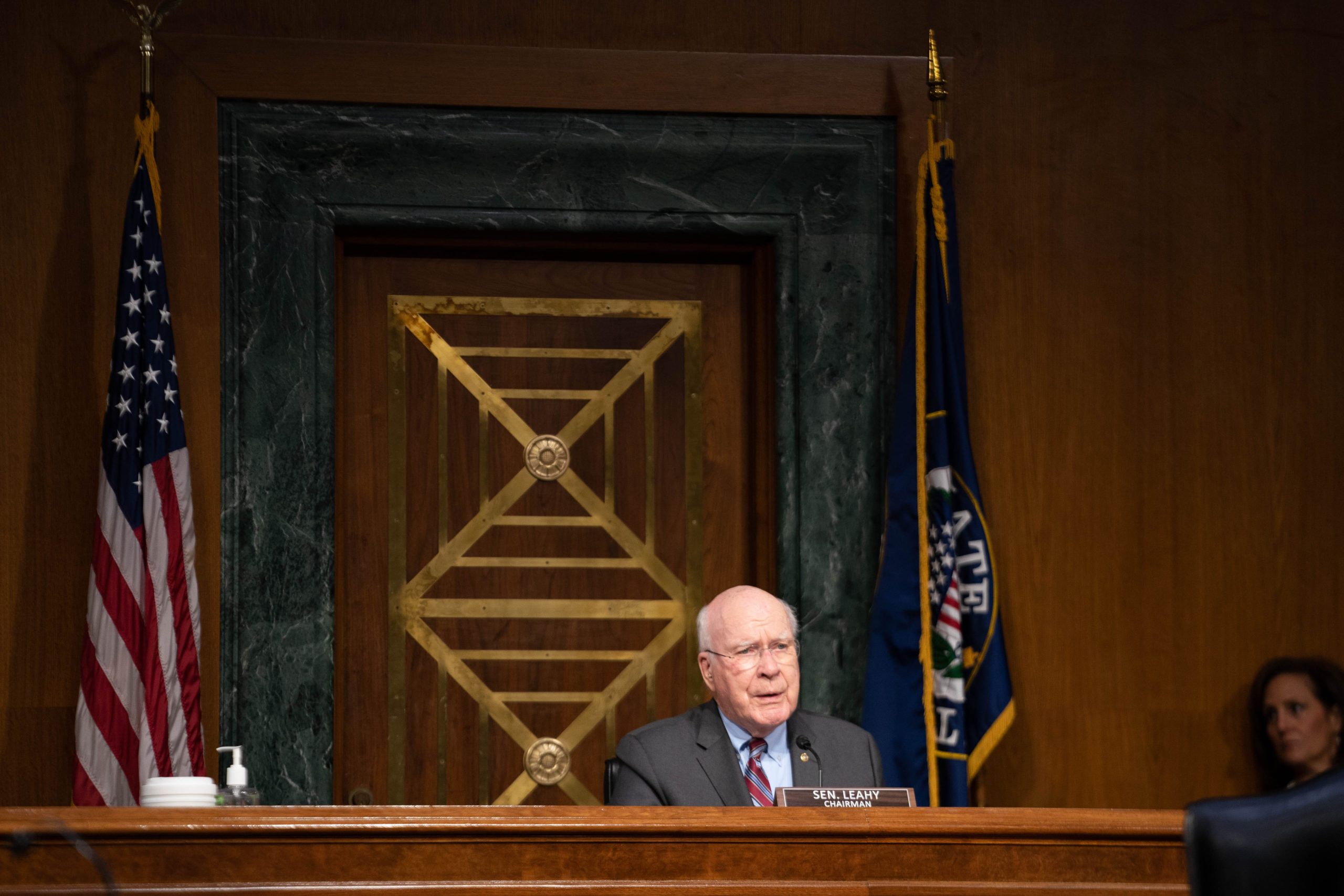Our Blog

July 28, 2022
Revolving Door Project Reacts to Treasury’s New Climate Data and Analytics Hub Announcement
In response to reports that the U.S. Department of the Treasury will create a “Climate Data and Analytics Hub” within the Office of Financial Research, Revolving Door Project Senior Researcher Dorothy Slater released the following statement:

July 28, 2022 | The Lever
Lawmakers Aren’t Disclosing Their Next Jobs
Despite a disclosure law, the Honest Leadership and Open Government Act, only one of 56 retiring members of Congress has filed reports on their potential new jobs this election cycle.

July 28, 2022
CORPORATE CRACKDOWN UPDATES: 7/28/22
Welcome to the seventh edition of the Revolving Door Project’s Corporate Crackdown Project newsletter! Presented by the people who infuriate the sponsors of other newsletters.
July 27, 2022 | Revolving Door Project Newsletter
NEW: Democrats To Constituents "We Can't Govern!"
As you sit here reading this, a hulking scrum of U.S. Senators is charging towards an underserved August recess, blundering out of Capital Hill exits to do even less work in luxury vacation homes, alpine escapes, and the sullied fundraising retreats of crypto bankers and oil barons. Having failed to pass significant legislation benefiting the American people this year, corporate representatives of both parties have have good reason to rest easy: across the bloodied playing field of the national mall lie the tattered and well-bruised remains of President Biden and his cabinet, a team not of rivals, but do gooders and no getters, struggling for relevance under the sepia-tinged banner of the musty Third Way, proudly proclaiming “We Can’t Govern!”

July 26, 2022
Activists to Biden: Share Walter Reed Army Vaccine With the World
If the Walter Reed vaccine proves effective against Covid-19 and its variants in further tests, it will be a vaccine wholly created by a public institution through use of public funds. Every aspect of the vaccine production process should be widely and freely shared to ensure globally distributed manufacturing. Widespread, equitable availability of effective vaccines at truly affordable prices would go a long way in achieving your stated goal of vaccinating the world.
July 26, 2022
Advocates to President Biden: Don’t Give Away New Publicly-Owned Coronavirus Vaccine Technology to Corporations
In advance of the White House Summit on the Future of COVID-19 Vaccines today, 29 groups including Public Citizen, Demand Progress and Revolving Door Project, a project of the Center for Economic and Policy Research, sent a letter to President Joe Biden urging him to ensure that pan coronavirus vaccine technology currently under development by the U.S. military remain public, and shared with the world.

July 26, 2022
Fossil Fuel-Tied Legal Experts Are the Main Critics of a Climate Emergency Declaration
months of dedicated advocacy and both public and private pressure from environmental groups which insisted an emergency declaration was necessary to meet the moment, it seemed like Biden was finally ready to respond. But the declaration didn’t come, and in the days since, PoliticoPro’s EnergyWire and GreenWire have given spotlights to legal experts opining on the legal and political merits of such a declaration.

July 20, 2022 | The American Prospect
Democrats Need to Fight for a Government That Works
Despite months of increasingly desperate horse trading and frantic whittling, Joe Manchin has narrowed the reconciliation package formerly known as Build Back Better to just a health care bill. Senate Majority Leader Chuck Schumer, meanwhile, appears set to torpedo popular, bipartisan antitrust bills on Big Tech’s behalf simply by refusing to bring them for a vote. And a once-sprawling bill on competitiveness and advanced manufacturing is now mostly an economic development subsidy to semiconductor manufacturers.

July 18, 2022 | Politico Europe
To withstand authoritarian threats, ethics standards must be stronger
Earlier this year, many breathed a sigh of relief, after France’s far-right opposition candidate Marine Le Pen’s bid for the country’s presidency went down in resounding defeat for the second time in five years.
That she was able to reprise her role as a second-round presidential candidate, however, let alone pick up close to enough votes, attests to a troubling fact: In France, and elsewhere, the threat from right-wing populist movements is mounting — not receding.

July 15, 2022
Biden Should Not Trade Executive Actions for Mythical Senate Promises
The president’s proposal to restart fossil fuel projects would abdicate his responsibility to ensure the laws are faithfully executed.
July 13, 2022 | Revolving Door Project Newsletter
Only Through Change Can We Save Our Institutions Now
So the rollercoaster ride continues, deep into the summer. Thankfully, while Congress is in session—and these next three weeks of negotiation are expected to be deeply consequential for the future of the clean energy transition—the Supreme Court is not. (Well, let’s hope they don’t abuse the “Shadow Docket” [pdf]). We shouldn’t have to hear from them again until the first Monday of October. But of course, after months of waiting with heightened anxiety for Dobbs v. Jackson, West Virginia v. EPA, and many other rulings to drop, the Supreme Court had to leave us with something new to worry over as they headed out the door for summer vacation: Moore v. Harper.



July 08, 2022
The Extraordinary (Time) Costs of Senate Republican Nomination Blockades
There are at least 366 presidentially appointed positions requiring Senate confirmation that are still awaiting a nominee or have nominees already going through the long, arduous, confirmation process. However, a process that has long been notorious for how time-consuming and antiquated it is, is intentionally being made even more difficult by nefarious Republican bad actors that are weaponizing Senate rules against supremely qualified nominees specifically to hinder the health of the federal government and to devastate President Biden’s agenda.

July 08, 2022
Top SEC Enforcement Officials Take A Swing Through The Revolving Door
In another notable swing through the revolving door between government and BigLaw, two top Securities and Exchange Commission enforcement officials recently joined Willkie Farr & Gallagher LLP as partners. They join former SEC general counsel Robert Stebbins and former CFTC commissioner Christopher Giancarlo as government alumni at the firm.
